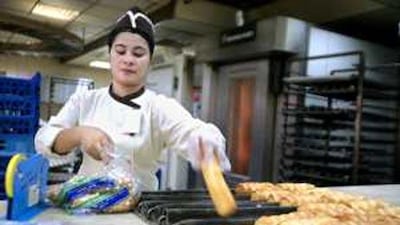Shoppers could soon see improvements in many everyday products including grains and bread, energy drinks and mineral water after the Federal Government approved new standards to weed out inferior goods. Twenty-nine requirements were approved, the official news agency WAM reported. The standards would take effect in October, said Mohammed Badri, the acting director general of the Emirates Authority for Standardisation and Metrology (ESMA).
The move was aimed at ensuring consistent product quality to protect consumers, Mr Badri said. "We want to unify everything, to make sure that everyone is producing the same thing," he said. The rules will affect grain and grain products as well as fish, meat, mineral water, halal foods, energy drinks, pigments and some household electrical products, WAM reported. Some regulations, such as those to do with household electrical products, were updates intended to align existing rules with international standards, Mr Badri said.
But other regulations - covering bread, for example - resulted from consumer complaints submitted to the Ministry of Economy, he said. "People were complaining that the bread they are buying is different," Mr Badri said. "The weight is different, the number [shown] on the plastic is different. It says it is weighing 200g, but it is actually 150g. So, based on that, they asked us to develop regulations."
David Edwards, the managing director of IMES Consulting Group, a market research company based in Dubai, said the standards initiative was a good move. "There should be a certain kind of expectation that if what you pick up looks like a standard Arabic flat bread of 'x' amount, then that is what you should be getting," Mr Edwards said. "And companies should not be able to be doing whatever they have been able to do, pumping air into it or something else, to make it look the same size."
The new regulations could increase costs for some local bakers but were unlikely to affect larger and better established operations, Mr Edwards said. "If a regulator were to introduce something to overcome a perceived problem, it's pretty unlikely to reduce costs," he said. "If there is a problem with the quality of bread ? then in order to improve quality there is going to be an increase in costs."
@Email:aligaya@thenational.ae

